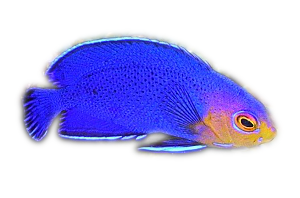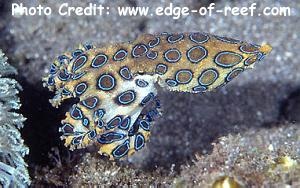
By Bob Goemans


Not Reef Tank Suitable
Not Suitable for Fish-Only Tank
Octopus are found in both temperate and tropical oceans. Many have a short life span, less than two years. They only mate once, then die. The male dies shortly after depositing his sperm into the mantle cavity of the female. The female is capable of storing the sperm for a few months, but after depositing the fertilized eggs and caring for them until they hatch, the female then dies.
They have the most well developed eyes of any aquatic invertebrate. Even though they cannot hear, they have an excellent sense of touch and smell. They crawl and swim by drawing water into the mantle cavity and forcibly expelling it through their siphon tube. Similar to how a jet engine works. They are also excellent at changing their skin color as a means of passive defense. At time of real danger, they eject an inky secretion that forms a dark cloud allowing for escape.
As for strength, they are extremely strong for their size. A small 5 inches (12 cm) octopus could lift an aquarium cover that is weighted down with a brick! Then crawl out and wander around your home! I know - been there, done that! They are also highly intelligent and make good but short-term pets. The ones I've maintained appear to be quite ammonia sensitive and require very good water quality and excellent water movement. They like to hide during the day, as they are nocturnal creatures. A bite from the tiny 1 inch (2.5 cm) Blue Ringed octopus mentioned below can be fatal.